Back in 2014, two friends – James Roh and Joey Howell – set in motion plans they'd be dreaming up for years. Namely, to quit their jobs, move into a truck camper together, and spend six months driving all over North America looking for good snow, good times, and a lot of miles logged on their splitboards. We interviewed them at the start of their journey, when they were just getting underway with a stop here in Jackson Hole.
RELATED: Get your splitboarding skills up to par at the upcoming Arc'Teryx Backcountry Academy
Having survived all their food freezing, a broken-down truck, cabin fever, and trenchfoot – yes, trenchfoot – we thought we'd check back in and see what lessons they learned from their months on the road living in the same space together, traveling to and shredding foreign faces, not showering, and not getting the nominal amount of alone time that would keep a normal person sane. Be sure to watch the documentary they made, The Powder Pilgrimage, above.
Lesson #1: Always respect the mountain – you won’t be able to be an expert on any snowpack in particular
On a trip like ours, where we’ve traveling to so many snowpacks, it’s really hard to have a season’s worth of knowledge when you just show up for a week to ride.The last day of the trip, I got caught in a slide (watch at 28:00 in the video above), and we realized that we didn’t have a full understanding of the dynamics of that mountain even though it was a chute we’d actually hit about two weeks earlier.
We were trying to be cautious and had inched into that line. We felt pretty good about it, but I think when we decided we felt good about things, that’s when we got in trouble. It was the last line of the trip, and we had played it safe all winter, and since we thought it was stable in AK, we could get out and ride some bigger stuff.
You’ll likely also be switching back and forth between maritime, continental and inner mountain snowpacks throughout the season, so knowing where to look for current snowpack information is crucial. So is being willing to back down from a line if it looks wrong - it’s hard to get yourself to back off a line if you spent five hours working for it, even harder if you spent five days driving towards it first. Staying humble will be one of your best assets.
Lesson #2: Do your research and take local tips - they will help
A huge part of this trip was being in the mountains every single day, but you got to take rest days, and it gets dark at five pm. So getting the tip that we could to go to the Disco Night at the Stagecoach in Jackson Hole and be able to park the van right there was prime. Or the Great Alaska Bush Company, which was a great strip club we got a tip to check out. Or getting off a -30º Celsius hut trip and, with a tip, finding a steaming hot hot springs in Nelson, BC.
CHECK OUT: TGR's comprehensive Backcountry Travel Guide to plan your ultimate trip this winter
The local tips will only get you so far though, they might save you an expensive meal, or find you a good watering hole, but make sure to do your own homework as well. Nothing is worse than getting to where you want to be and then not knowing how to find the right lines.
I started researching Alaska seven months before we even left. I had found a cool hut trip, and some really cool riding, and we had a great time, whereas when we winged it in Montana, we kind of got skunked, didn’t find the local beta we needed to find what we wanted to ride.
Lesson #3: You will share nearly everything, so take time apart when you can
When you’re traveling with someone, you’re going to get pretty close, and you tend to lose your modesty a little bit. You have to be pretty open to make a trip like this happen, everything from sharing food to the same piss jug to sharing sicknesses. Inevitably, we’d both get sick whenever the first one got sick.
So there’s not a whole lot you can do when you’re stuck in the same confined space with another person for days upon days, especially while you’re driving between mountain ranges that are thousands of miles apart (e.g. Whistler to anywhere in AK). Time to embrace the shared pee jug(?). That being said, when you do get time apart, take it. Coffee shop stops are crucial, they will keep you and your companion sane.
Eventually, you’re going to end up being pissy for no reason. Especially on the drive to Alaska, where we were both getting over being sick and having these huge days of driving, it wasn’t the best days in our relationship. Also, it’s not possible to live in a camper with another guy for five months and not get into it with each other. Sometimes we’d sit at different tables when we’d stop for lunch or coffee. Coffee shops and libraries were a great way to decompress for a bit, have some alone time, talk with people other than your one travel partner, and charge batteries and whatnot.
Lesson #4: Everything will freeze solid, nothing will dry
That first week, in Jackson, it didn’t break 0º. All our food was frozen, our oils were the consistency of Playdough, and we were actuallu using our refrigerator to keep things from freezing. Be prepared for everything to freeze, from your sunscreen to your piss jug to your olive oil. We made a lot of popcorn, because it never froze. We had to eat less fresh produce and more frozen foods, lots of frozen veggies, lots of pasta, and peanut butter.”
When your things aren’t frozen, they will be wet, and they will not want to dry. Taking the opportunity to dry anything you can whenever possible will keep you happier.
If there was a sunny day and we weren’t riding, we’d find a parking lot and have a gear explosion and lay out every single piece of gear to dry it out. Any chance we had to dry things out, we took advantage of. We might even get a day pass to a rec center to take a shower and spend forty minutes under the hand warmer drying our gloves.
#5: Invest in down booties
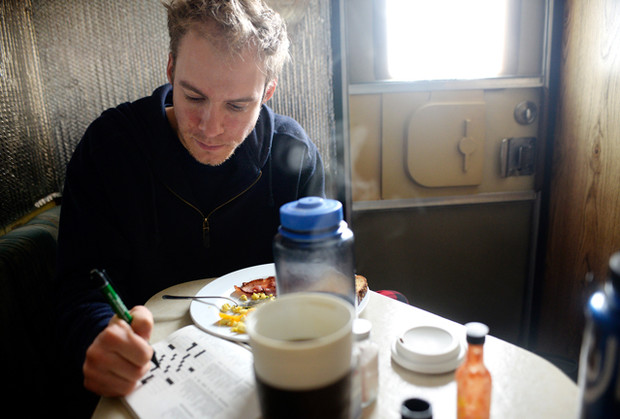 When your snowboard boots are permanently damp, you need a dedicated, dry pair of footwear for the camper. James Roh photo.
When your snowboard boots are permanently damp, you need a dedicated, dry pair of footwear for the camper. James Roh photo.
I’d highly recommend getting down booties for the camper. I got trenchfoot, basically, because I was in wet snowboarding boots the entire time that never dried out.
And, even if you don’t have trenchfoot, down booties are the way to go. They feel like heaven after a day in ski boots, and as long as you keep them dry (or buy a waterproof pair) they will give you an unreasonable amount of happiness after a long, cold, gnarly day. Also, they’re a relatively small expense, usually like $20-$40. You can thank me later.
Lesson #6: Employ all old-school and modern activities you can to pass time in the camper
Joey was reading Game of Thrones the entire six months on his Kindle. We’d make up movie marathons… we’d download every Pauly Shore film in a coffee shop, and that might last us seven days. We’d charge up the laptops and get a movie or two a night out of it, keeping the screen as dim as possible. We also played lots of board games and each kept journals.
Just force yourself to do it, because even if you are just writing boring things about the day, it will be great memories later. It also helps you wrap up the day and write out your decision making, and see how well you did your day in the mountains.
Lesson #7: Keep your show as legal as possible, but your nudie pics should be fine
 Having "funny" naked photos you sent your girlfriend saved on your phone will actually not get you in trouble with Border Patrol... somehow. Wikipedia photo.
Having "funny" naked photos you sent your girlfriend saved on your phone will actually not get you in trouble with Border Patrol... somehow. Wikipedia photo.
We hadn’t made it an hour outside of Salt Lake before getting pulled over for not having lights on our camper. We looked like a black mass. Just avoid any reason to get pulled over.
Later, we were crossing the Canada border outside of Seattle in this matte black camper that’s murdered out. We had to pull the camper up to this giant X-ray machine, had to sit inside and get called up, and they ask us to see our phones to make sure we hadn’t made contact with anyone to work or sell drugs in B.C.
I had taken a “comical” photo of myself butt-ass naked in front of a floor to ceiling mirror at a friend’s house while I was taking a shower, had my hand blocking my junk with a super goofy smile on my face. And had a photo in there of a monster pre-rolled joint we had gotten completely legally in Seattle. So I had both these photos, back-to-back, in my phone’s camera library. The guy calls me back after 20 minutes, hands me the phone back with the photo of the joint still open, and told us we were good to go. So either delete that stuff, or own it, because it’s not going to get you into trouble.
Lesson #8: Expect the unexpected and be prepared Financially, Medically and Logistically
Bring plenty of food and water, because you never know when you’re riding terrain that you’re not familiar with, and your skins fail, and all of a sudden your day turns into a twelve-hour day… and always bring your Voile straps, I had my skins fail a couple times on this trip and they absolutely saved me.
Get medical training and practice avy safety. Joey and I had wilderness first responder training, because there were a few times on a long hut trip where, had someone hit a rock and broken an arm, what would we have done? Luckily we didn’t have to use it too much, but having the knowledge, and keeping up on it, is just as important as having the avalanche training. We did some good beacon practice on random days – take advantage of those beacon parks many resorts have.
Have more money than you think you’ll need. The price of gas was about $8 a gallon in the Yukon. And we had our steering column break in Alaska while we were doing doughnuts in a parking lot and hit a foot-deep pothole.
And always keep your candy pouch full… a candy pouch on your backpack belt loop keeps your morale up. I remember one day where we got back from touring in the national park, and James just cracked because we hadn’t eaten anything and a small dose of sugar would’ve really helped there.



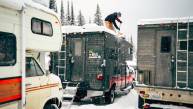
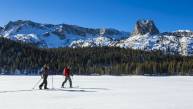
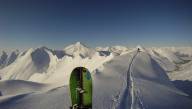
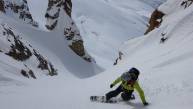

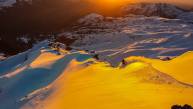
__video_thumb.jpg)
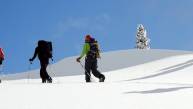
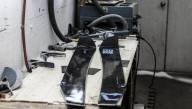
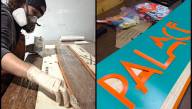
__video_thumb.jpg)
niyamisra123
June 4th, 2018
bill of sale pdf
Storyboard template 8.5 x 11
free fax cover sheet
family tree template with siblings
2019 Calendar Excel
June 2018 Calendar word
resignation letter template
Cherry Yu
January 3rd, 2022
I love your content! Great job!
microblading spokane
Cherry Yu
January 3rd, 2022
I highly appreciate your work here! Thank you so much!
microblading boise
Cherry Yu
January 3rd, 2022
I wanna know more about this because this is really informative!
microblading portland